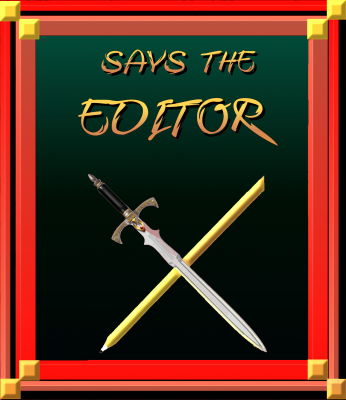February 1, 2018
 So my post last week spawned some questions.
So my post last week spawned some questions.
The first was about the word ASK. When do you use it, and when do you use SAID?
The author asking that is a writer of wonderful romances and women’s fiction. Her books resonate. They’re best-sellers. They win awards. And yet… she’s brave enough to ask this.
Yay for brave authors who are always striving to improve their craft!
I’ve stalled long enough, haven’t I? I’m not stalling because the answer’s not easy. It actually is relatively easy, for fiction — because you’ll notice that near the end of this, part of my answer is going to be all about context and nuance — but of course there’s a BUT. And this BUT is the tough spot. It’s a current belief that you should never use ASK and always use SAID.
I disagree. Here’s why, and it’s pretty simple.
Definition of ask
asked play \ˈas(k)t, ˈäs(k)t, ˈask; dialectal ˈakst\; asking
transitive verb
1 a : to call on for an answerShe asked him about his trip.
b : to put a question about
asking her opinion
c : speak, utter
ask a question
2 a : to make a request of
She asked her teacher for help.
b : to make a request for
She asked help from her teacher.
3 : to call for : require
a challenge that will ask much of us
4 : to set as a price
asked $3000 for the car
5 : invite
She asked a few friends to the party.
intransitive verb
1 : to seek informationask for her address
2 : to make a request
asked for food
Almost all of these definitions involve an inquiry (yes, even an asking price!). Therefore, ASK. ASK is the word of inquiries. And while Webster’s doesn’t specifically mention dialogue, it comes close with that top definition. To call on for an answer; to put a question about; to speak, utter. Those all require ASK.
Let’s bring it to dialogue:
To call on for an answer: “Jane, do you know the answer?” the teacher asked.
To put a question about: “Jane, what is your opinion?” the teacher asked.
To speak, utter: “Jane, am I asking you a question?” the teacher asked.
Notice what these sentences all have in common?
Yes.
Question mark.
That’s a tell-tale sign that you should ASK instead of use the more generic SAID.
But what about when the question comes at the start of the dialogue, and declarative sentences follow it?
Now you’re seeing what I meant by context. Look:
“Jane, do you know the answer. It isn’t hard. It’s black and white and read all over, and I know you know it,” the teacher said.
She’s buried the question in front of a bunch of simple declarations. The question isn’t lingering; our focus as readers has moved on to the teacher’s repetition. Maybe the teacher’s prompting here, but she could also be a bit irritated. (As an aside: this is also where you want to be careful with your dialogue tag. You might be tempted to use prompted and tell the reader how the teacher is speaking. Or you might be tempted to use an adverb: the teacher said snappishly, again telling us what’s going on rather than SHOWING. But we’ll get into detail about adverbs in our next post.)
Back to the issue at hand. Look at this example.
“Jane, do you know the answer? It isn’t hard. It’s black and white and read all over and I know you know it. C’mon, Jane, please show me you know,” the teacher asked.
That’s because this final statement is a request. Or, to think of it more organically, if the teacher is prompting, which she seems to be, it’s not a stretch for the reader to imagine the inflection rising at the end of this comment, as if she’s letting an unspoken question hang in the air.
And that’s your difference: is there an unspoken question hanging in the air? Does the speaker’s inflection rise at the end in the classic speech pattern of a question? If so, use ASK.
So… are you WRONG if you prefer SAID over ASK?
No, not technically, because SAID is a catch-all. But yes, I think it does affect the way a reader interacts with the text. I think a reader who doesn’t see ASK in the tag is less likely to mentally add that inflection, and that removes a layer of texture to the narrative. ASK is an easy way to reinforce to the reader that a question is being posed. And like its friend SAID, it often becomes unobstrusive in the prose, there as a cue to the reader in how to interpret the words being spoken, not calling attention to itself while doing an important job.
Because let’s face it: if you have Mikey over here who is incapable of phrasing anything as a question, whose delivery is always flat and devoid of emotion, don’t you have a hard time understanding when Wouldn’t that be fun? is a question and when it’s a rhetorical device, or even sarcasm?
I sure would.
And that’s why I like ASK. It’s got a good friend in SAID, but it adds just a bit more oomph and helps the reader interpret the text.
Let me know what questions this spawns… I’ll keep answering if you keep asking!